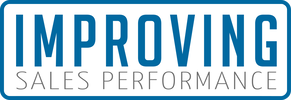 It's no secret that an organization has to enjoy alignment across all of its departments to really grow (or at least grow in a sustainable way). The problem is, it's common for departments, teams, sales managers, and even individual team members to be misaligned with one another. In other words, they may have very different ideas about the value the company provides, the selling points that help to convert leads, and the typical journey that the ideal customer takes. Misalignment can be a major problem for any business. Think about it: If one of your reps is selling based on price, and another one is selling based on customer experience, then where does that leave brand consistency? How can you focus on the prospects with the highest potential value if your reps aren't even sure who they are? The point is, sales management involves working out any misalignment issues within your organization as soon as possible. It may not lead to immediate, explosive growth. But it will stabilize your processes and revenue stream. That is the foundation you need for your company to really take off. This is where the revenue equation comes into the picture. What is the Revenue Equation? If we were to express the revenue equation as a mathematical formula, it would look like this: Sales Foundations + Sales Design + Sales Infrastructure = Revenue Stabilization and Growth When those three key elements on the left side of the equation are completely aligned across the entire organization, the inevitable result is stabilization, and ultimately growth. The question for sales managers is: Do you understand the revenue equation for your company? And if you do, how about the rest of your team? We've talked about these three elements in this recent blog post, but let's just remind ourselves what each component involves:
For sales managers, defining these three elements is the easy part. The trick is, making sure everyone on your sales team (and within your organization) is on the same page when it comes to these "pieces of the puzzle." If each sales rep has a different idea about what your company is all about, then many of them are selling for an imaginary company — the one that exists in their mind, not in reality. Understanding the Revenue Equation is Vital to Sales Management In practical terms, the main issue is how to get everyone on the same page. If you're the Change Agent, then you'll need to lay the groundwork for the Improvement Team to achieve that desired alignment. That means you'll have to dig in and ask some probing questions. Throughout this entire process, you'll also need to be guided by the three key qualities of the Change Agent: Hold the Vision Remember, the ultimate objective of your meetings with the Improvement Team is to work out any alignment issues. This is critical to stabilize and grow revenue. You can't forget that — and you can't let your team forget it, either. Think of it like a family road trip. You need to figure out where you're going (not just the main destination, but any "sub-destinations" along the way). How will you get there? What's expected of each family member? In the same way, with each meeting you need to be upfront and intentional about the main goal (your destination), as well as any "stepping-stone goals" along the way. Of course, sales managers also need to be clear about how you're going to get there, and what's expected of each team member. Consistently Cultivate Trust Depending on the dynamics of your company, you may need to do some pre-work before your team members start opening up to you. Create opportunities for them to express their true thoughts and opinions. This may mean multiple introductory meetings at the start, several one-on-one sessions, and even meetings without the team's direct supervisor (just to give the participants some space, and with the supervisor's approval). Here's another thing to keep in mind: Sometimes team members, in the middle of a meeting, will experience what we'll call a "tangential epiphany" — a really great insight that has nothing to do with the topic at hand. It's important to handle those occasions with care. You don't want to derail the meeting. But you also want to demonstrate your respect for the team member's contribution. The best way for sales managers to deal with that situation is to put the participant's idea "in the parking lot." Set aside time to loop back around to it at the end of the meeting. Alternatively, you could have a quick one-on-one with the team member afterwards to flesh out his or her idea. That's a great way to build trust, and gain more insight into your company's Revenue Equation at the same time. (In fact, sometimes those "tangential epiphanies" are the most valuable insights that come out of a meeting!) Seek to Understand Once sales managers have established a baseline level of trust, and everyone in the meeting knows why they're there, you can really dig into the details of your company's alignment issues. You can easily identify which areas need attention by simply having each participant rank, on a scale of 1 to 10, each of the following components is within your organization. The ranking should be done based on how well-defined each component is in the mind of each sales team member. 1. Sales Foundations
2. Sales Design
3. Sales Infrastructure
After you get those preliminary scores, you can explore the discrepancies and areas of confusion you find on a deeper level. Effort Pays Off It takes some effort, and it definitely takes some commitment, to work through this process. But the light at the end of the tunnel is a deeper understanding of where misalignment exists, and the beginnings of a game plan to fix those issues. If you and your team really understand the organization's Revenue Equation, you'll be able to work together to refine it, stabilize it, and eventually use it to improve your sales performance. Gain more insights and effective sales leadership techniques for your SMB by signing up for our newsletter. Contact us directly, or explore our website for other valuable resources and webinars.  Are you a sales leader who sees that your organization needs to undergo a deep-seated, positive change? If the answer is yes, then you need to make an important determination: Are you the right person to implement that change, or should you play a supporting role? In other words, are you the change agent or the champion? Change Agent Vs. Champion In a previous blog, we talked about the main goal of a change agent — to affect powerful, lasting change within an organization. Change agents are more like guides than they are supervisors. Their job is to approach underlying issues and bottlenecks in the sales process with an open mind, like an investigative reporter approaches a "developing story. They must ask probing questions, listen to understand, and get buy-in from the entire team. Their sales leadership role is essential to making the organization's vision a reality. Change agents have a lot on their plate, right? However, a change agent's effectiveness is limited without the support of a champion. The champion is the sales leader who discerns the problem, and has the authority to assign a change agent. He then supports the change agent as he/she gets to work. The role of the champion is supportive in nature, but absolutely essential if you want the best outcome for your company. Which Sales Leadership Role is Yours? This is a key question to answer early on. After all, you don't want to spend the next several months in "shoes that don't fit!" Here are a few indications that you can take on the role of change agent.
If you can check all of these boxes, then you may be able to take on the role of the change agent. On the other hand, you might have a full plate already. Maybe the thought of carving out 10 extra hours a week seems like an insurmountable obstacle. Or perhaps you don't naturally have the personality or skill set that's required for an effective change agent. There's no shame in knowing your limits. If you conclude that it wouldn't be realistic for you to take on the duties of a change agent, then you can start the search for someone else to handle that responsibility. What Resources Will the Champion Provide to the Change Agent? If you are going to play the role of the champion, then there are two important resources you must provide the change agent (once you appoint him/her). 1. Ample Time to Work They say that "Rome wasn't built in one day." The same principle is true of organizational change. Your change agent is going to need enough time, over the course of several months, to identify areas of opportunity, explore options for change, and then implement those findings. A change agent's average time commitment is usually 10 hours per week. This includes meeting with the organization's Improvement Team on a regular basis. They also need time alone to process the results of those meetings and come up with potential solutions for your sales team. 2. A Reasonable Level of Authority A change agent also needs, well, a certain level of agency in order to handle their sales leadership role effectively. This will include the authority to call meetings, to pull your sales reps into those meetings, and to maintain confidential communication with team members. A change agent also needs the authority to assign employees individual (and even group) work to do. In fact, if you're going to be a truly supportive champion, you should even empower your change agent to hold you accountable for any work they need from you. How to Identify the Right Change Agent Any potential change agent you identify will need to possess 3 key qualities.
The question is, where you should look for that change agent? The natural fit may seem to be someone who's already in a sales leadership position in your company, either in sales or marketing. The obvious advantage of going that route is the person's pre-existing familiarity with your sales process, and any problem areas. Of course, that familiarity may be a double-edged sword. Perhaps your sales and marketing managers are too close to the problem. Or, there may be some internal friction that will hamper their effectiveness as change agents. If that's the case, then you can broaden the scope of your search to include leadership from different departments. For instance, maybe your VP of finance has the right skill set (and distance) to lead the conversation around positive change. (And if they need some help in that role, you can always assign an assistant to lend a hand.) Then again, what if every potential change agent in your organization is slammed with work, lacks the required skill set, or doesn't have the distance to successfully navigate volatile team dynamics? If that's the situation you're facing, then it may be best to bring someone in from the outside. As the champion, you'll have to make sure that this external change agent has the resources they need for success. At the same time, you may need to set up certain safeguards in order to trust them with private information. Effective Sales Leadership Results in Greater Performance Whichever route you decide to take, remember that regular, two-way communication between you and the change agent is vital. If you both are closely aligned towards your common sales goals, then you'll be able to make a lasting change within your organization. The result of an effective sales leadership strategy will be improved, sustainable sales performance. Gain more insights and effective sales leadership techniques for your SMB. Sign up for our newsletter. Contact us directly, or explore our website for other valuable resources and webinars.  When you hear the term "change agent," what comes to your mind? Maybe you think of a motivational speaker that comes in with a stockpile of buzz-words and feel-good phrases, leading your employees in a "team-building exercise" involving a bed of fiery coals. Or maybe you think of a 30-year-old, wearing a power suit and perfectly coiffed hair whose only job is to beat up your sales reps for not closing to their full potential. Here's the good news. Neither of those images represents what a change agent truly is. A change agent's main goal is to affect powerful, lasting change in the organization. That can't be done through a dictatorship. Rather, a change agent must have the right attitude and skill set to do the job properly. That means being open-minded and respecting everyone's seat at the table, without exception. Basically, a change agent must sincerely listen to each team member's input. In fact, he or she should welcome and actively seek such input. Only with the insights from and support of your entire team will you be able to effectively discover opportunities for improvement, align your teams and departments toward those newly discovered goals, and implement needed changes. Three Key Qualities of a Change Agent It's important to consider a change agent as a guide, rather than a boss. Think of the change agent as an "investigative reporter" rather than a "mechanic." The mechanic's job is to find the problem and fix it, even if it means disassembling the engine in the process. The reporter's job is to ask questions until they clearly understand the facts. Similarly, some business-minded people want to approach their sales department as a "machine" that needs fixing. However, it is almost always more helpful to approach organizational improvements as a "developing story," one that needs to be thoroughly investigated before any definite conclusions are reached. With that in mind, here are three key qualities that a change agent needs to display during the process of discovery, alignment, and implementation. 1. Seek to Understand A change agent must seek to understand, first and foremost. That means active listening, both to individuals and groups. It also means asking some penetrating questions. Language is a prime example of why deep understanding is so vital to organizational change. Take the word "partner" as an illustration. A lot of companies talk about "partnering with their customers" — but what does that really mean? To one sales rep that may mean 24/7 availability; to another it may just be an insubstantial buzz-word. Only by asking those probing questions, and really listening to the answers, can a change agent find and define common ground — a foundation from which the entire team can build together. One of the best questions that a change agent can ask is: "What's showing up for you?" It's open-ended enough that the other person can interpret it in different ways. At the same time, it invites honest feedback on the content and direction of the conversation. A simple question like that, used skillfully, can highlight different opinions between team members in a neutral way. It's a great step towards ensuring that everyone is on the same page moving forward. 2. Hold the Vision By seeking to understand where team members are coming from, the change agent can guide them as individuals and as a collective. The change agent directs them toward the ultimate destination — achieving the company's vision. Of course, any long journey comes with its share of "hiccups," a detour here, a traffic jam there, a delayed flight up ahead... you get the idea. When those hiccups do happen, the important thing is to stay focused on the goal. This is where a change agent can prove to be invaluable. The change agent has to hold all stakeholders accountable to the vision. If interdepartmental alignment is a clearly stated goal but communication is slipping, then the change agent may need to call management out on this issue. It's okay if team members or managers occasionally lose sight of the end goal. After all, the sales industry gets real busy, real quick. But when that happens, someone needs to right the ship and remind everyone of where they want to go. Usually, that someone is the change agent. 3. Consistently Build Trust When a company is struggling with misalignment, employees are going to experience some level of frustration, disappointment, and other negative feelings. In turn, those negative feelings are going to inhibit the company's "improvement team" from sharing potentially painful, but sorely needed insights with their managers and colleagues. This is where the change agent comes into the picture. He or she absolutely must create a safe space in which everyone can express themselves without fear of judgment or retribution. Maintaining confidentiality is a huge part of this — and it's an ongoing process, not a one-and-done task to check off the list. If a team member vents to the change agent, the rep's trust would be completely shattered if his or her manager comes by the next day and says: "I heard you were unhappy about this issue." Once that trust is lost, so is any hope the employee will contribute something that could lead to lasting change. Besides confidentiality, the change agent has to know the culture of the company — and even the personalities of the individual team members. Would people feel comfortable expressing themselves in a large group? Would smaller groups be better? Or would one-on-one breakout sessions be most appropriate? How the change agent structures team interactions will play a subtle but important role in whether all members of the team ultimately buy into a culture of trust and change. Why Does Your Sales Organization Need a Change Agent? The simple answer? Without the right person leading the charge, any changes you want to make will have less impact and a shorter lifespan, than they could have had otherwise. Of course, whether you yourself, a designated team member, or an outside expert should be your organization's change agent is a judgment call that you'll have to make. But when you give your change agent the freedom to understand, question, remind, and nurture, then your entire company will benefit as a result. If you'd like more insights on how to improve sales performance for your SMB, be sure to sign up for our newsletter, contact us directly, or explore our website for valuable resources and webinars. |
Meet Me
Archives
April 2024
Categories
All
|
|
We are headquartered in Colorado with domestic and international teammates and clients. Please use the contact form on this page to inquire about any of our books, podcasts appearances, speaking engagements and workshops, any of our offerings, or simply to connect.
|
© Improving Sales Performance. All Rights Reserved.


 RSS Feed
RSS Feed
